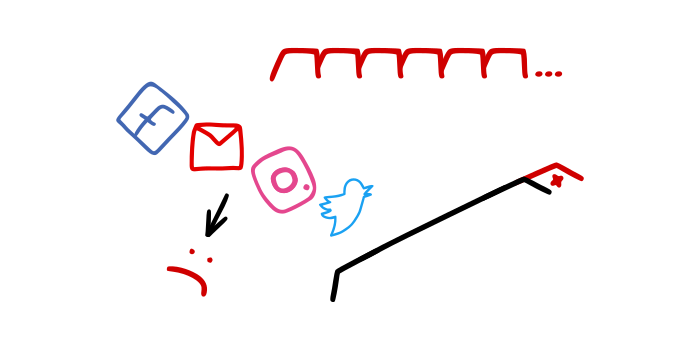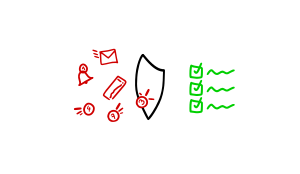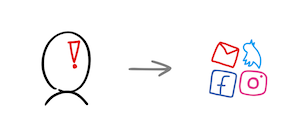How to avoid
“I’ll do it tomorrow”
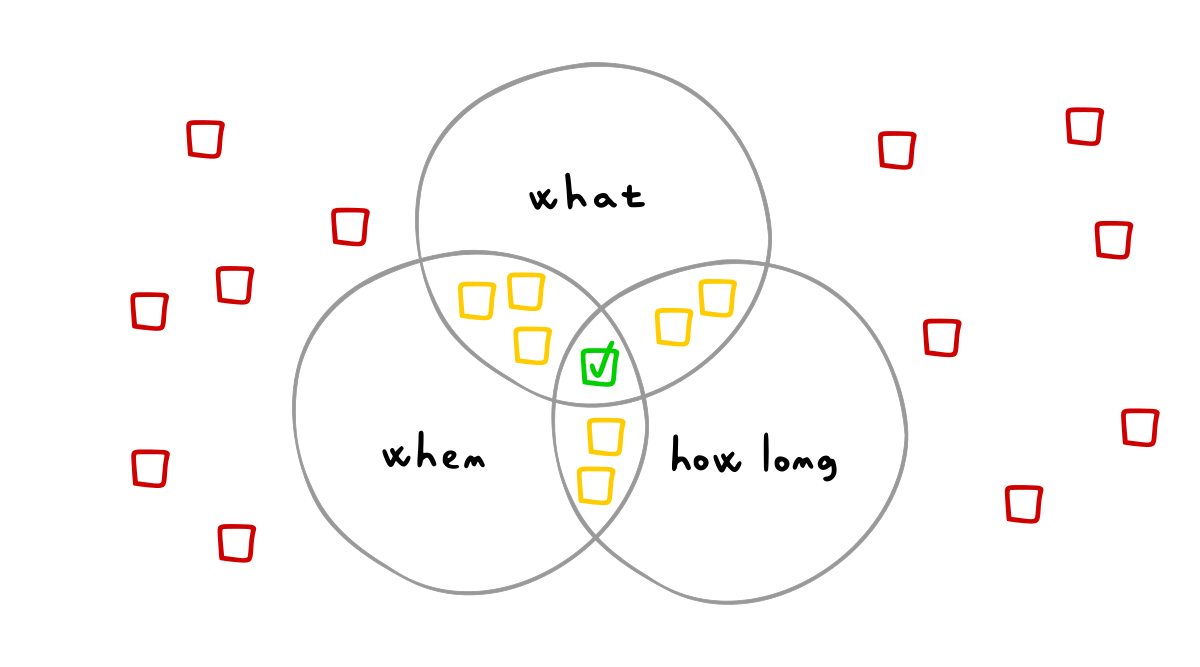
Do you often find yourself not feeling like working today?
Do you always tell yourself you will do it tomorrow or in the future?
But then you still go to bed feeling like you haven’t done anything?
Let’s change that by having proper daily execution.
Here are some frequent problems many people run into (especially when working from home):
- No clear place to start
- No clear signal to start working
- Unrealistic expectations
These 3 problems conspire to leave you feeling discontent at the end of the day. As you feel bad, you say: “I’ll do it tomorrow, I’ll start, I’ll really focus tomorrow.” But if you don’t have a plan for how to do that, you’ll most likely just repeat the same mistakes.
Let’s avoid these traps.
How?
By understanding this:
What + when + how long = done.
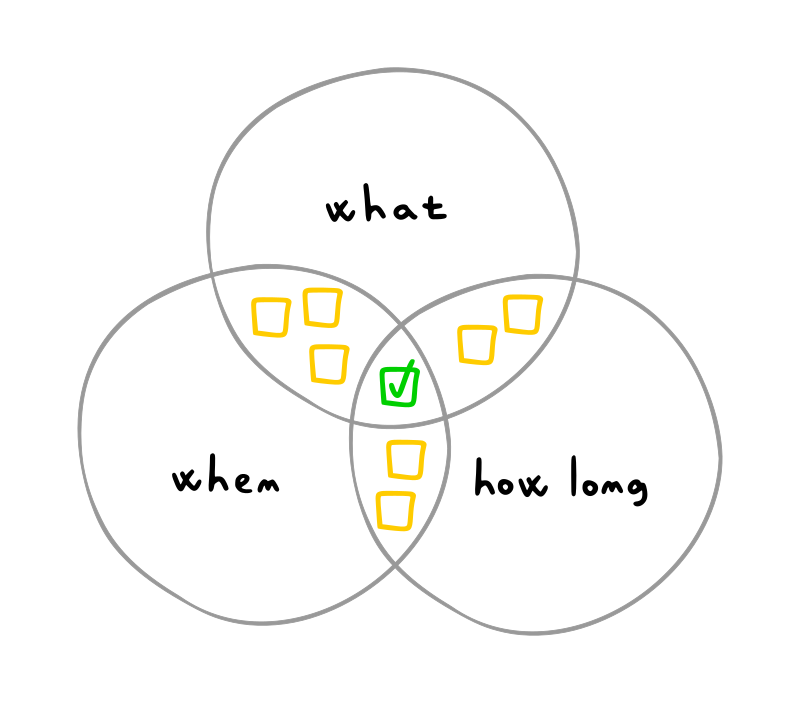
1. What do you actually expect yourself to get done?
Without a clear answer to this question, you'll browse, scroll, and waste time.
Most of us have to-dos that are somewhat loosely defined. Design a website, write a book, research X,...
These are projects, not to-dos.
Most days, we don't finish a project. We get some part of it done.
So the question is: what part of it do you actually expect yourself to get done today?
Sometimes this is defined for you. Your boss, coworker, or family expects you to get something done, so you fulfill the expectation.
But what if there's no external expectation placed on you?
Then you have to decide and commit.
Having a long list of things to do is often useless. You take a look at it and get paralyzed by too many choices.
Every day, you need to figure out which tasks are for that day, and which tasks you’ll do in the future.
The simplest way to do this is to create a short to-do list the day before, or first thing in the morning.
Even if you use a digital to-do manager and have long lists there, sometimes it’s better to create a separate very short analog to-do list that doesn’t disappear from sight easily.
Write down on a piece of paper 1-4 most important tasks you will work on today or tomorrow (if you’re doing the planning in the evening). It’s simple but effective.
What do you expect yourself to work on today?
2. When do you expect yourself to do it?
Okay, so you have a to-do list for today. Great start. What now?
To be effective, we need to know what to do when. Something needs to tell your brain: "Now's the time to work on X."
If you don't have a clear expectation when you'll work, it's easy to put it off and let your day descend into unproductive malaise.
When you don't decide on a time window or a prompt, then it becomes easy to let your standards slip.
What did I mean to do? Hmm, I don't feel like doing any of this. Okay, let's watch an episode of this new show...
Without clear expectations, there's nothing we're really supposed to be doing. It's incredibly easy to just do whatever we feel like and use no self-control at all.
When to start? Use the 3C framework
So how exactly can you make it clear when you expect yourself to start?
Use the 3 Cs:
- Clock
- Calendar
- Coffee
Let’s dive into each one.
⏰ Clock
You set a certain time to begin. 9AM = go. You can also use an interval 9-9.30 = start.
Clear time boundaries are essential, especially for work that we're even a little apprehensive about.
If you decide and commit to work on Thesis research from 9-10.30AM, it's easier to exercise self-control in a strategic way.
Say you expect yourself to work between 9-10.30AM.
It's 9.23AM and you don't feel very engaged in your research. You're tempted to start watching a Netflix show. But you assigned this specific time to that work. Now there's a conflict in your mind between your commitment and your desires. To resolve this conflict and keep your commitment, you use willpower to push through.
However, when you have no expectations, there's no conflict. No opportunity to apply willpower. So you get side-tracked because every desire is seen as being okay right now. No reason to exercise self-control.
📆 Calendar
Creating a schedule is one way to get a clear sense of what to do when.
Blocking out parts of a calendar works for some people.
Clock + you can also set end times, plan every day of the week and be more strategic in general.
If you don't use the calendar, try it again.
When do you expect yourself to work?
Create a block and if you already know what to work on, add a link to the notes/doc.
☕️ Coffee
So you can use time to tell you when to focus, or you can define an action after which you'll start working. In behavior terms, this is called an action prompt. If you’re more interested in this, here’s a post all about prompts.
The literal interpretation is:
After I sit down at my desk with my cup of coffee, I will open my laptop and start writing ___.
But you can choose any prompt:
After I meditate, I will start coding.
After I wake up, I will change into workout clothes and jump rope for 10 minutes.
After I close my laptop, I will tidy up my working area.
You can use this for anything you’re procrastinating on.
3 Cs
⏰ Clock
I start working every day at 9AM.📆 Calendar
I start every day at 9-11AM on X, 1-4PM on Y, call John from 4-5PM...☕️ Coffee
After I sit down at my desk with coffee, I start working.
Not complicated, but if you don't define a clear start, you'll waste time.
With clear when, it's easier to use willpower, stay on track, and feel good that we did what we said we would.
We focus best when we get a sense: "I need to do this task right now."
What tells you that now it’s time to work (besides a fast approaching deadline)?
Find a way to fill in the statement:
I work when _________ (using time).
At 8 a.m., I sit down and start writing for an hour.
At 11:30 a.m. every weekday, we have a call meeting.
Or:
I work after ______ (using a prompt).
For example: I work when a reminder on my phone goes off.
I sit down and start writing after I brew my cup of tea.
I floss my teeth after brushing them.
I learn programming after a cold shower after a workout in the evening.
Prompts are important in the beginning. When life gets busy, we have to get reminded to do something. Once something becomes a habit, prompts stop being something you need to pay attention and recede into the background.
How long do you expect yourself to work?
If you have what and when, you're already ahead of many many people. There's one last piece that can make or break you—for how long.
Say you normally focus for just about 15-30 minutes on a particular task.
You get motivated or a deadline is approaching, and you say to yourself:
"Tomorrow I'll wake up early and work from 8-11AM on this."
That's 3 hours, more than typical 30 minutes. You make it difficult for yourself because working for 3 hours sounds exhausting.
Adopt accurate expectations - just enough to push yourself
Now, it may be good to have an aspirational expectation of doing a 3 hour focused session. That gives you something to aim for (a process goal). But your everyday expectation should be calibrated based on past efforts.
Ideally you want to have expectations of yourself that push you just enough.
The key thing to understand here is that just enough differs from person to person.
Focus on yourself, right now. Good expectations are personal.
If you've done 0 minutes of focused work yesterday, 30 minutes is a win. Aim for at least 30 minutes tomorrow. It many not seem like a lot at first, but that's okay. The goal isn't unattainable perfection, but attainable improvement. Aiming for 2 hours will likely lead you to fail if you're not used to it, and get discouraged fast as a result.
On the other hand, if you're on a roll and doing 3 hours of focused work each day, then aiming for 4 is a good expectation.
What matters is your trend over time. You want to move towards an aspirational number.
2 common mistakes
Okay, now you know what to do, when, and for how long. There are still 2 ways to fail:
- You don’t start when you decided to.
- You start, but get side-tracked.
1. Starting on time
This is a problem for many people who procrastinate. We wrote a whole guide about why people struggle with starting and how to overcome it, but if we were to recommend only 1 technique it would be this one:
The 10 Minute Rule
If you don't want to do something, set a timer for just 10 minutes and do it.
10 minutes is not a lot of time, you can do most things for 10 minutes.
If you don't feel like continuing after the timer goes off, you can try again later.
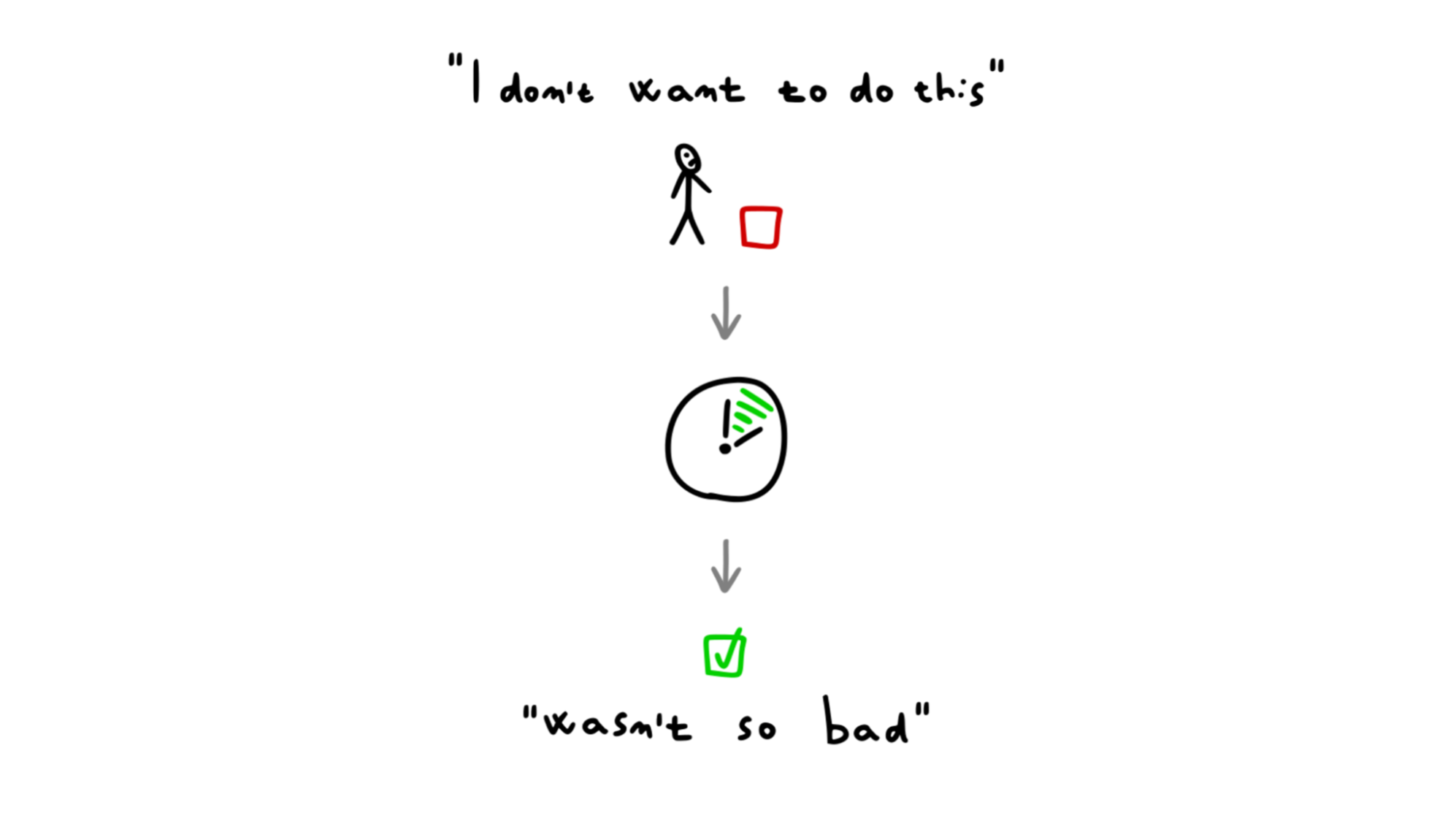
Starting is usually the most difficult part because we often think work will be harder than it really is. If you overcome that hurdle, when the 10 minutes are up you realize that you don’t want to quit anymore.
2. Getting side-tracked
You start working and after a few minutes, you feel a bit tired, or stressed, or bored. So, you check email. And then you check Twitter. And then you don't get back to work.
Once you fail, your resolution to work for 3 whole hours goes out of a window. You feel bad about not keeping a promise to yourself and waste the rest of the day.
Make distractions more difficult to access.
Don’t sit with a phone next to you shouting at you.
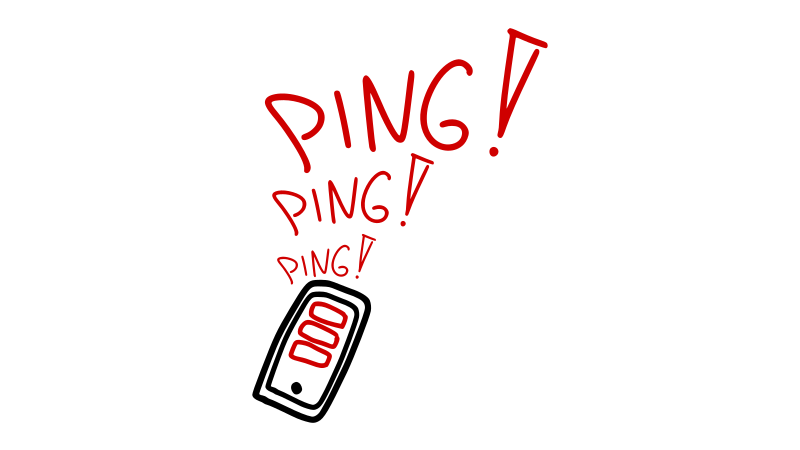
We covered resisting distractions: phone and computer
Realize this: If you want to get distracted, you will. No amount of distraction blocking can save you if you really want to get distracted. Making distractions harder to access gives you a moment to notice that you’re getting distracted and you can course-correct and resist the temptation. Most scrolling and browsing is mindless. We act on a sudden subconscious urge before we check in with our conscious mind. Just remember how often you’re on your phone without realizing it… And then you pause and don’t know the reason why you’re on your phone.
Push through and re-focus.
When you quit after running into the first emotional obstacle, you strengthen the habit of giving up and quitting. You don’t want to do that.
Instead, strengthen the habit of staying on track.
It’s natural to space out, get bored, or distracted during a work session. This is especially true for tasks we don't enjoy. What separates people who get things done from people who don't is one skill:refocusing.
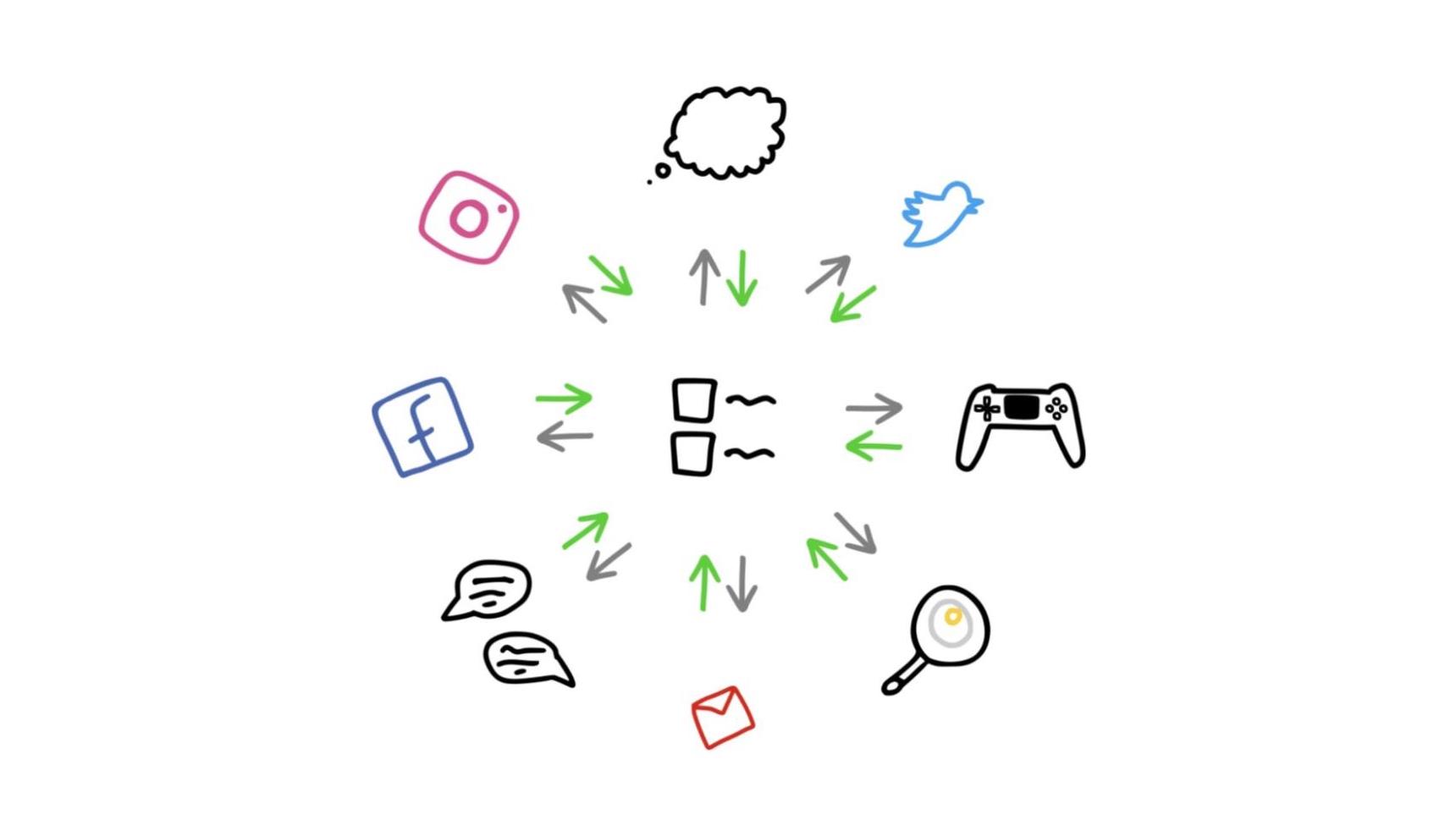
This is easier if the most addictive distractions are not available to you.
Refocusing is relatively easy after a few moments of thinking about what you might order for lunch. It's harder if you start scrolling Twitter. However, it can still be done.
Your attention will wander. More so when you're just getting into it or when you're tired. In those moments, it's crucial to return your attention to the task at hand.
Train your ability to refocus. Train yourself to not get distracted by the first thought that pops into your mind.
Refocus, again and again, and you will develop the skill of focusing for extended periods of time.
Summary
Stop the cycle of being vaguely disappointed in yourself but not changing anything.
Clarify what you expect of yourself.
- Figure out what you expect yourself to do.
- Figure out when you expect yourself to do it.
- Figure out how long you expect yourself to focus.
That’s how you avoid “I’ll do it tomorrow.”

